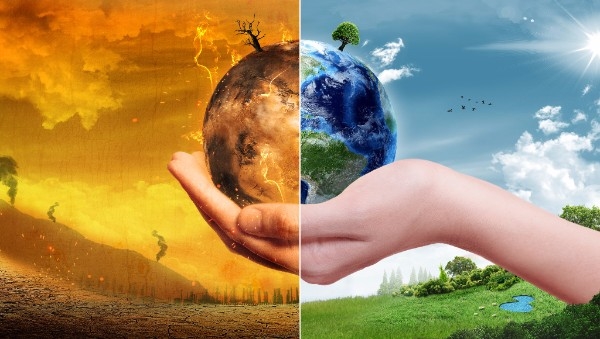As the world convenes for COP28 to address the pressing issues of our time, a silent crisis looms large, casting a shadow over the fight against the climate emergency – the insidious debt burden disproportionately stifling the world’s most vulnerable nations. A stark revelation by Development Finance International (DFI) exposes a harsh reality: these countries are shackled by a debt system that compels them to allocate more than 12 times what they spend on climate action to service their debts.
In the grand theater of global finance, where promises of climate justice echo, the truth remains unsettling. DFI’s study of 42 nations reveals a glaring disparity in financial priorities. Debt service payments, consuming an average of 32.7% of budgets in 2023, stand as a formidable obstacle, while meager allocations of 2.5% for climate crisis response expose a moral quandary.
Consider Indonesia, a nation grappling with the dual challenges of population density and climate vulnerability. In 2024, it plans to allocate a mere 0.12% of its budget to climate adaptation, juxtaposed against an overwhelming 29% earmarked for creditors. The implications are clear – an urgent call for comprehensive debt cancellation.
The urgency is not just numerical; it’s existential. Most countries studied are committing less than 2% of their budgets to climate adaptation, a fraction of what’s required. Many fall below the 1% mark, revealing a systemic failure to address the climate emergency with the gravity it demands.
Matthew Martin, DFI’s executive director, rightly calls for a debt cancellation initiative reminiscent of past decades, asserting that reducing countries’ debt service to 15% of their revenues is paramount. This is not merely a financial maneuver but a moral imperative to confront the climate crisis head-on.
Beyond the numbers lies a stark truth – the current debt crisis is already obstructing countries from scaling up investments in climate action. The struggle to meet creditor demands becomes a Faustian bargain, potentially exacerbating the climate crisis itself. Countries, forced to maximize exports for debt servicing, might inadvertently perpetuate fossil fuel extraction, delaying their own transition to sustainable energy.
While the Common Framework, introduced by the G20 in 2020, offers a glimmer of hope for debt relief, progress remains sluggish. Only a handful of countries have received relief, and even then, the Common Framework has failed to carve out space for increased spending on climate adaptation.
In tandem with DFI’s revelations, a collective voice of over 550 economists, climate experts, and activists resonates in an open letter, demanding debt cancellation at COP28. This is not a plea but a resounding call for justice. A call for the world to recognize that the climate crisis is not just an environmental challenge; it’s a socio-economic and moral reckoning.
As we engage in discussions on climate finance and global solidarity at COP28, let’s remember that debt relief isn’t just an economic policy; it’s a reflection of our shared humanity. It’s a commitment to climate justice, an acknowledgment that the burden of past financial transactions should not impede our shared responsibility to safeguard the planet for future generations. Anything less would be a betrayal of the very principles we claim to champion on the global stage.















